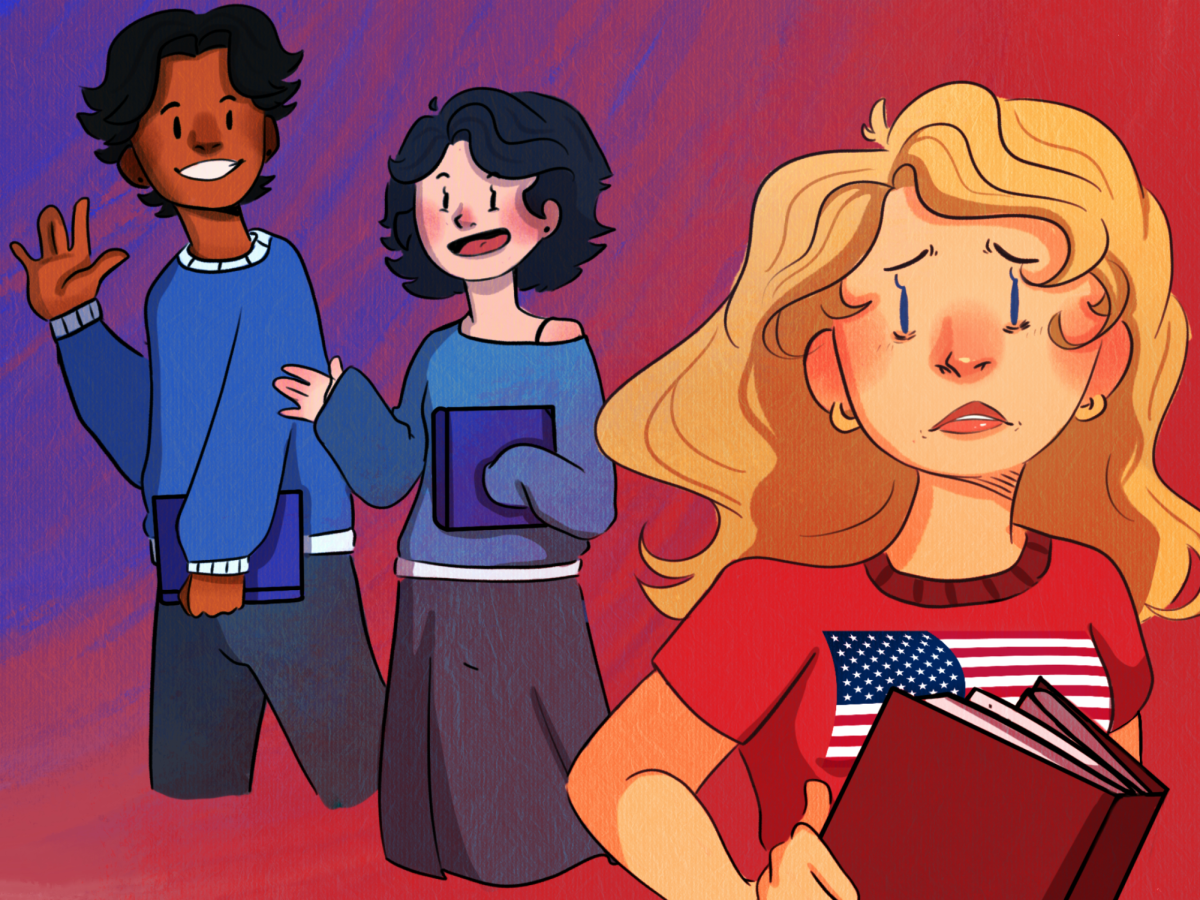As the University of Missouri’s president resigns after segregation complaints, the country has once again turned its attention to the ongoing problem of discrimination, a problem that goes deeper than the skin.
One of the most prevalent, yet simultaneously subtle, forms of this discrimination is through language.
In 1998, Ron Unz shared his anti-immigrant attitude with the rest of the nation as he began working to destroy bilingual education in California, according to The Atlantic.
Seventeen years later, 23 states have declared that English is the official language of their region, according to Dr. René Antrop-González, a professor of education for Dalton State College.
In the past 20 years, the U.S. has seen a 153 percent increase of immigrants speaking other languages while the solely English-speaking population has only grown by 15 percent.
Americans are scared. We’re scared of losing the one thing that binds us together as a nation. Scared of the fact that America is a place for everyone, not just the people we like. But this is in no way an acceptable reason to linguistically discriminate.
In 2012, a group of Filipino nurses won a settlement after they were required to only speak English at a central California hospital, where non-migrant employees were encouraged to eavesdrop and even follow the nurses, according to the Los Angeles Times.
During the same year in Salt Lake City, a Russian FedEx employee was fired because of his accent even after he offered to fly himself to the company’s main headquarters to display his English-speaking skills.
Discrimination like this in the workplace has only continued to grow. From 1997 to 2011, discrimination complaints in the workplace have risen 76 percent.
This fear of losing English is statistically absurd.
According to Antrop-González, out of the 262 million citizens of the U.S., nearly 215 million speak only English as of 2010.
So why are Americans so set on demanding that immigrants not just learn but only ever speak English? The answer: basic primal assimilation.
According to The SAGE Handbook of Prejudice, Stereotyping, and Discrimination, humans are tribal in nature. We divide ourselves into communities based on a multitude of similarities, but when another tribe enters our territory we become defensive and often perceive non-existent danger.
Here enters our instinctive bias.
An immigrant group is pushed to assimilate and often completely eradicate previous customs as to avoid a breakdown in the host culture’s established society. This creates tension, as the immigrant group wants to keep its culture.
But this is a prehistoric concept; the fact that the world consists of countries and governments versus tribes should be a clear indicator of that.
We are a civilized world, but we tend not to act like one.
Earlier this month, a woman in Minnesota was hit on the head with a beer mug after she ignored another woman’s screaming complaints that she was speaking with her family in Swahili, according to ABC News.
Closer to home, former Pima Community College student Terri Bennett is being charged $111 thousand in legal fees after she sued the college in August for suspending her when she complained and harassed peers because they were speaking Spanish to each other.
According to The SAGE Handbook of Prejudice, Stereotyping, and Discrimination, languages with high context communication, those with unspoken meanings behind words, can make non-native speakers uncomfortable and apprehensive to misunderstandings, leading them to prefer their own language when possible.
It’s baffling that people could hate someone so passionately just because of the language they speak, but even more that a person would demand another only speak their language. That’s like a foreigner telling you to speak only their language or go home.
Spoken language is a fundamental form of communication between human beings that brings the complex thoughts from our minds into the world, and although there are endless types of discrimination occurring in this country everyday, never for a second should we ignore the small ones.
Follow Ashleigh Horowitz on Twitter.








